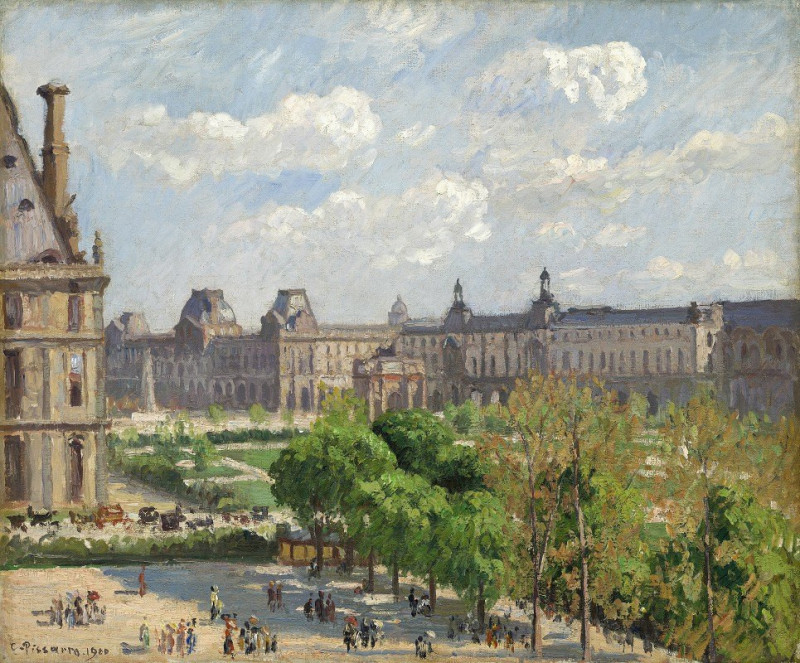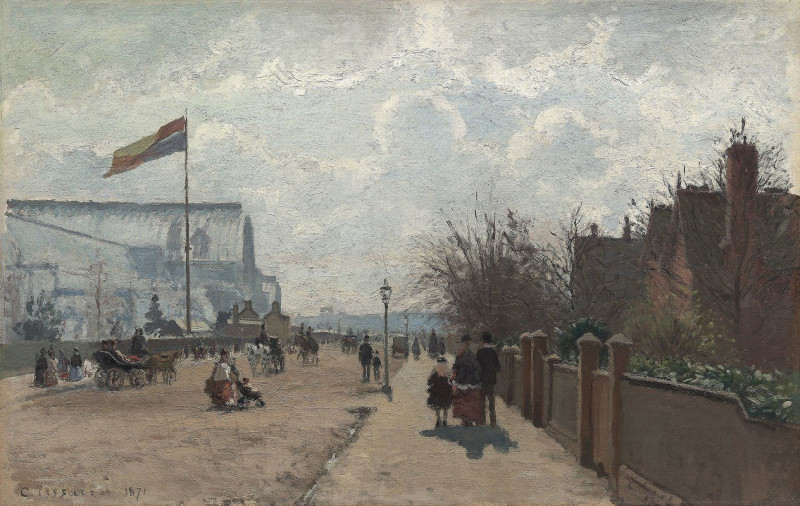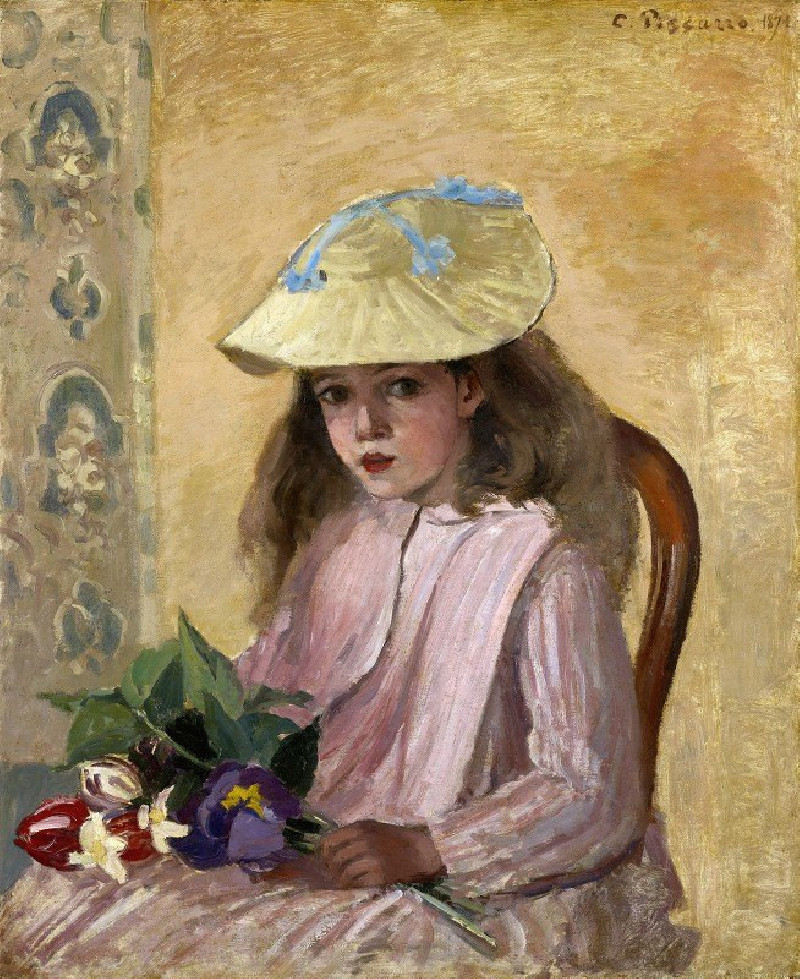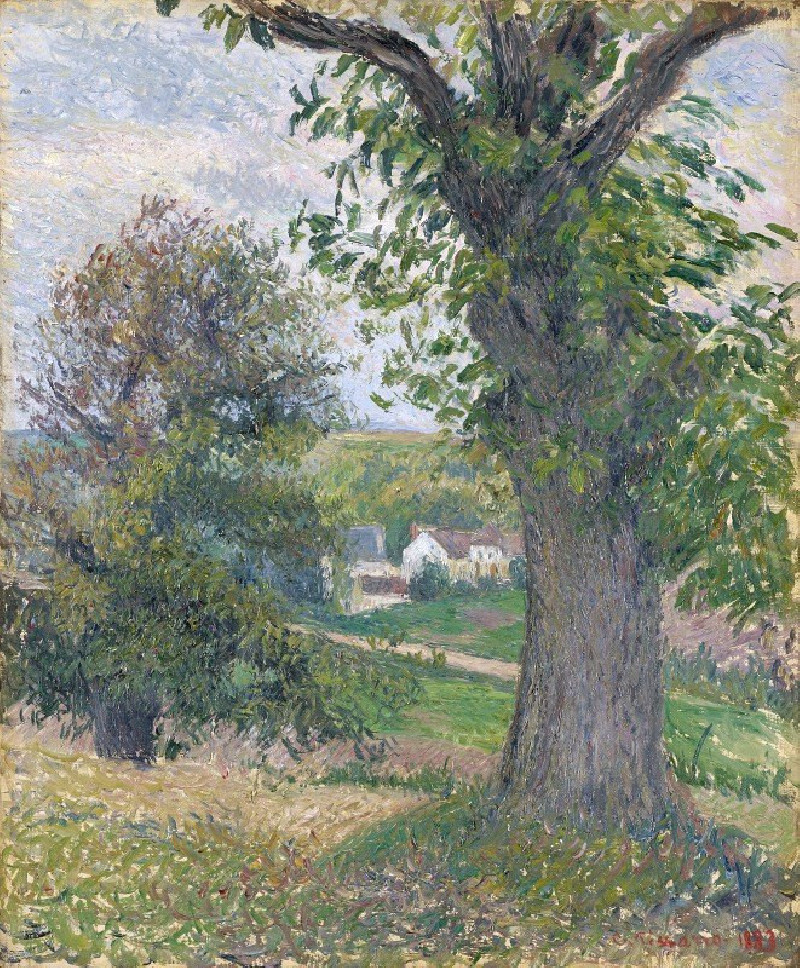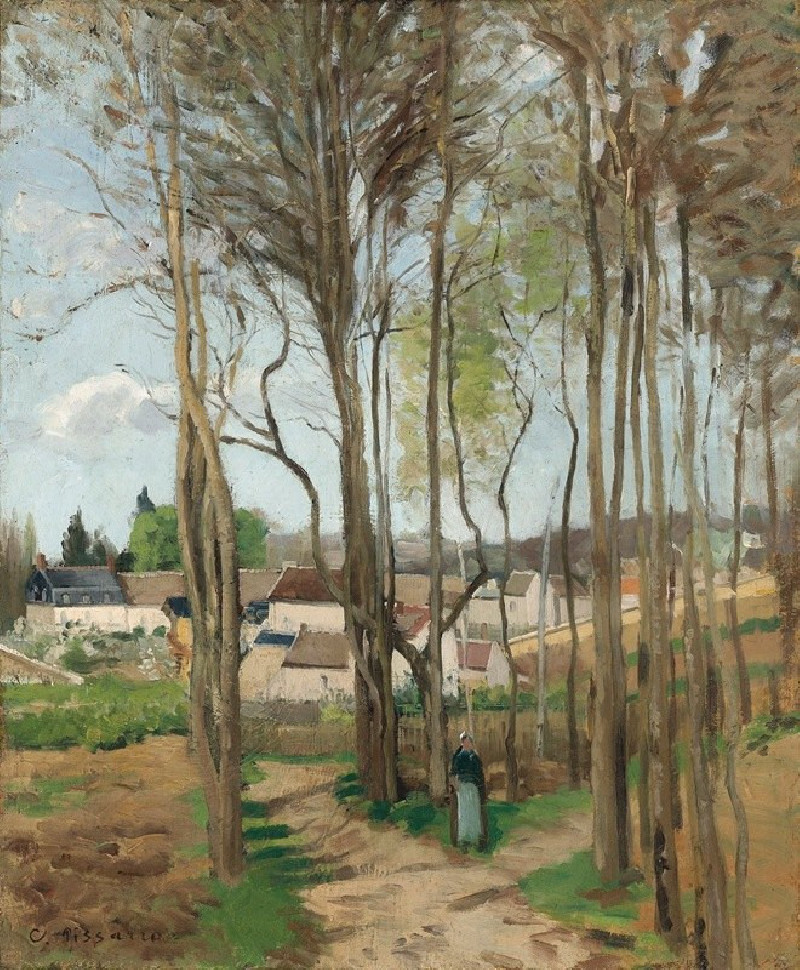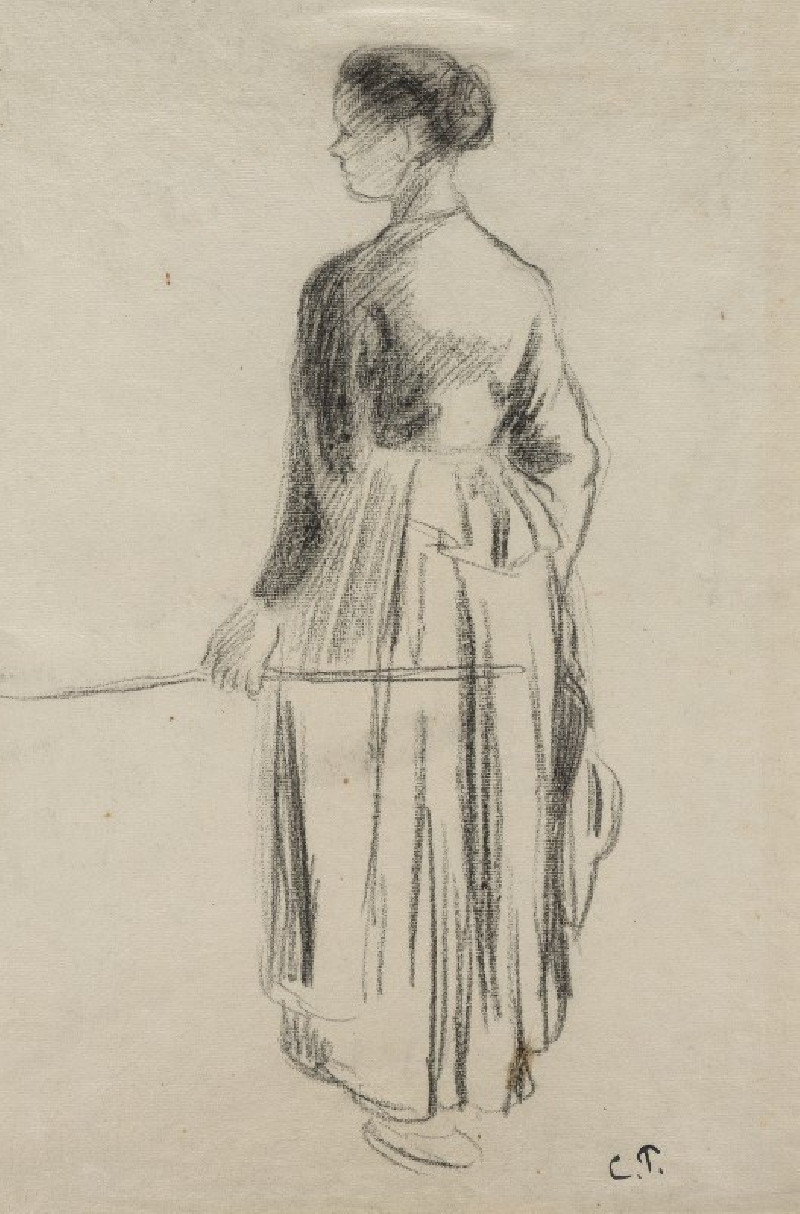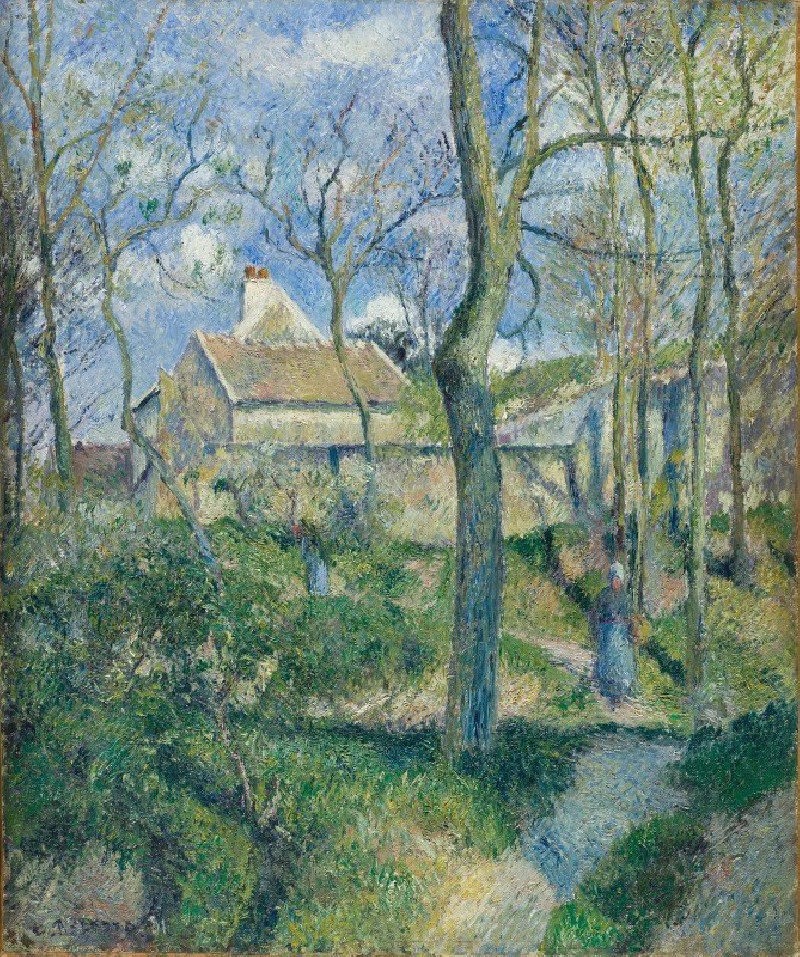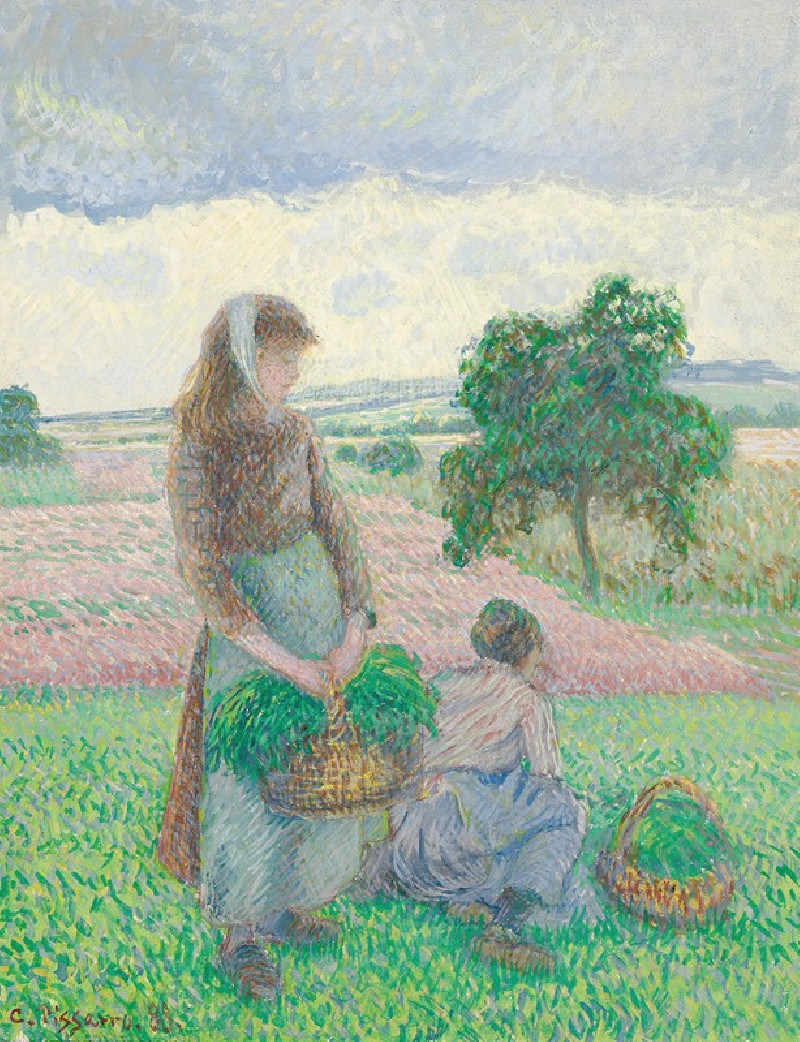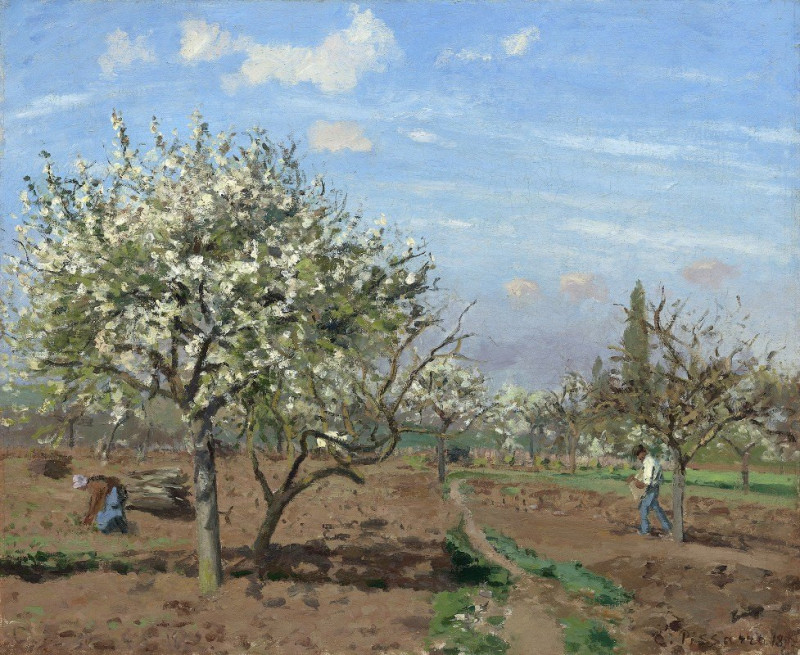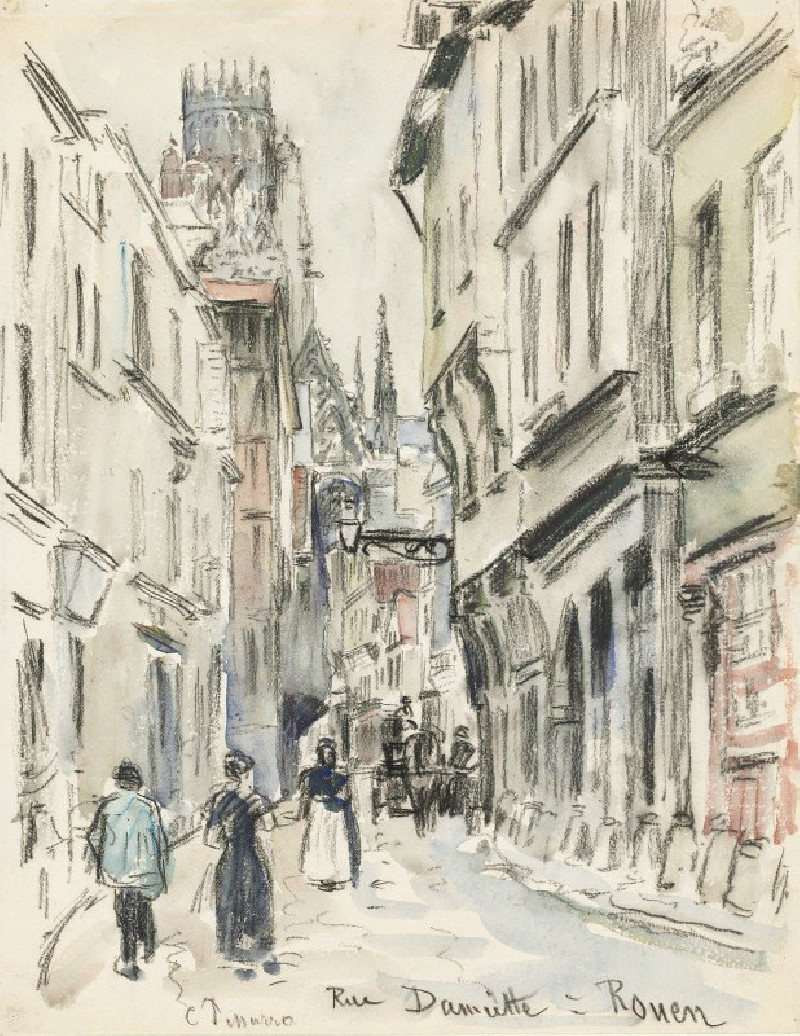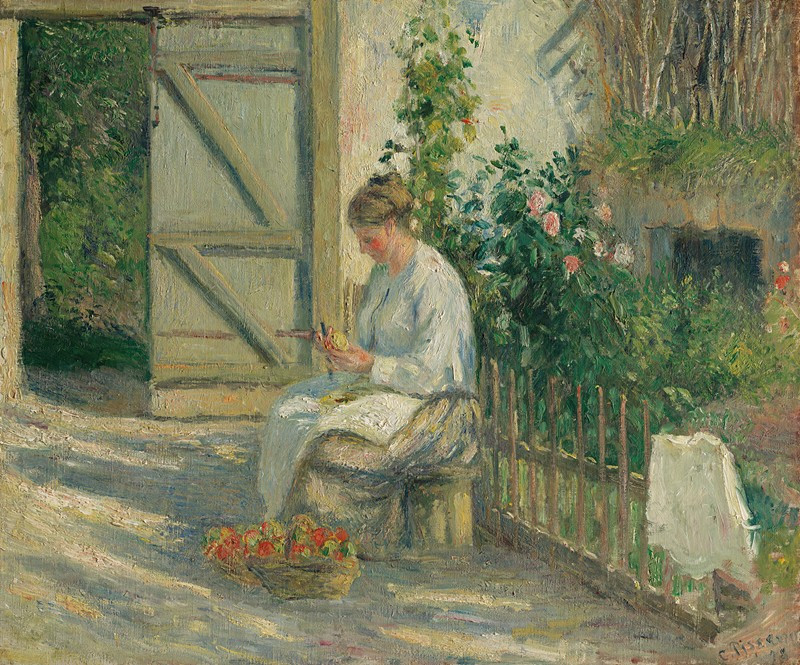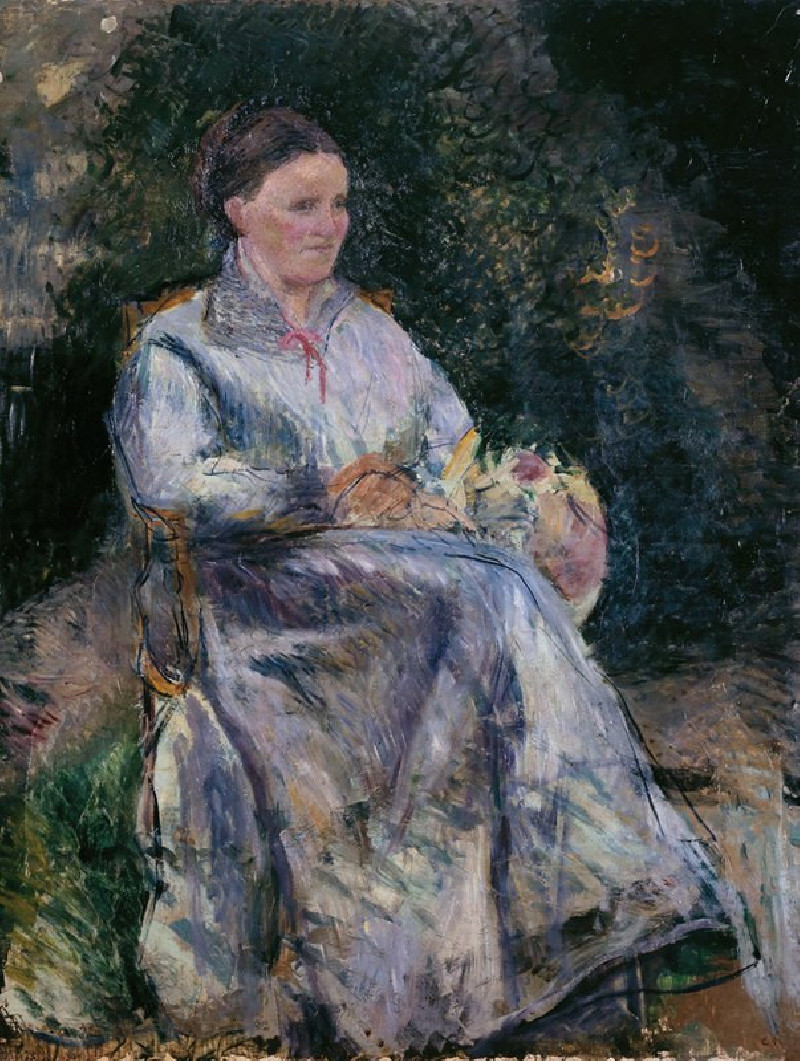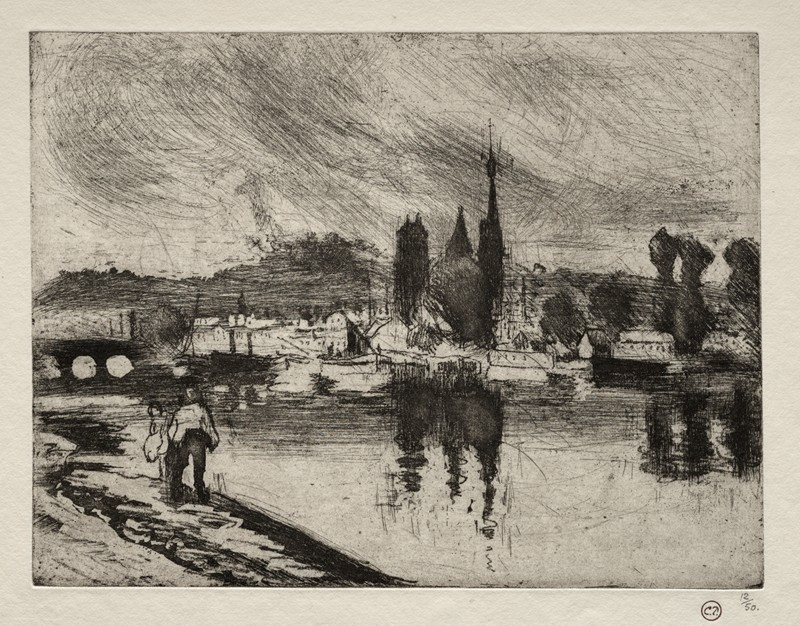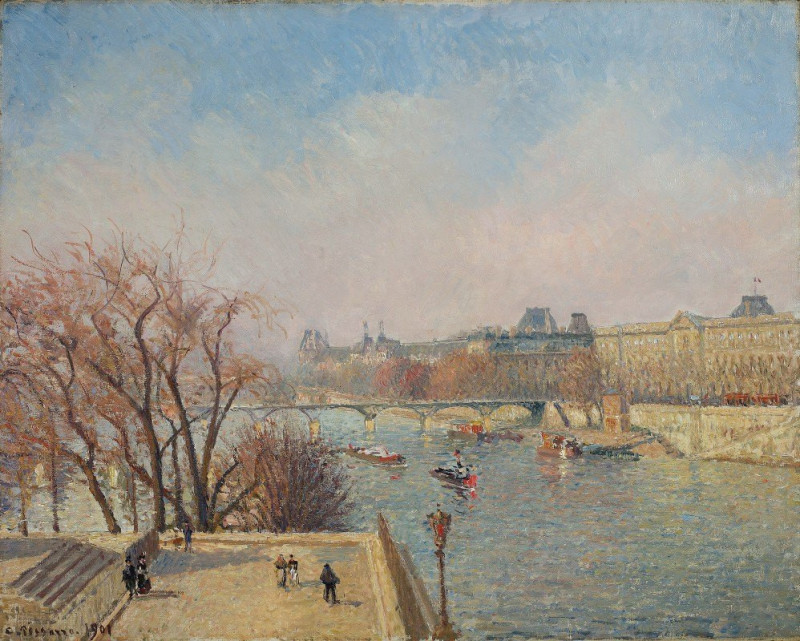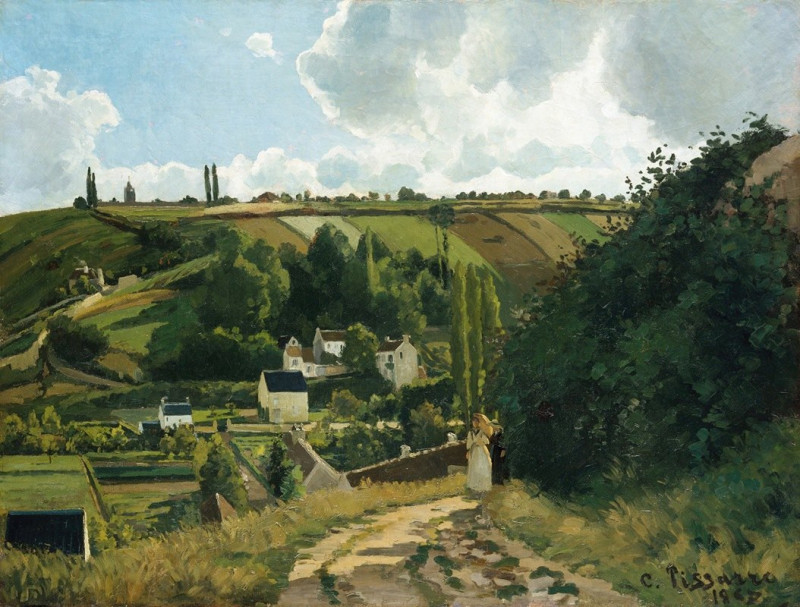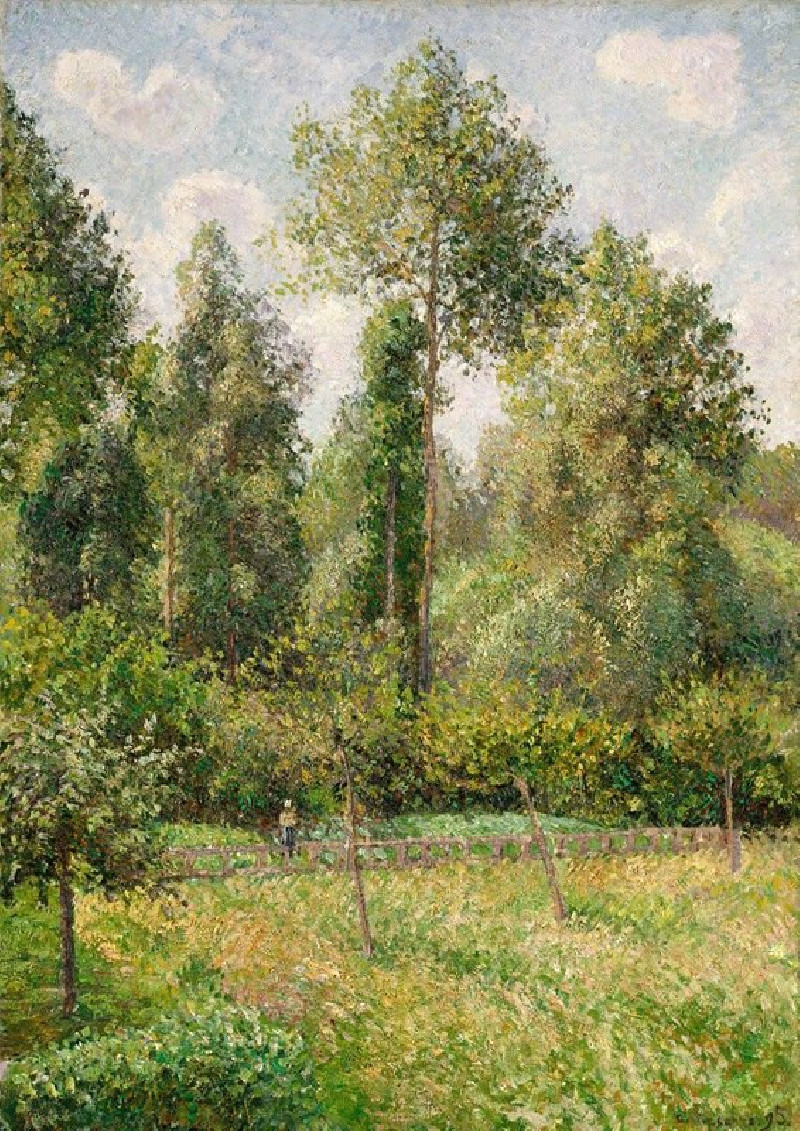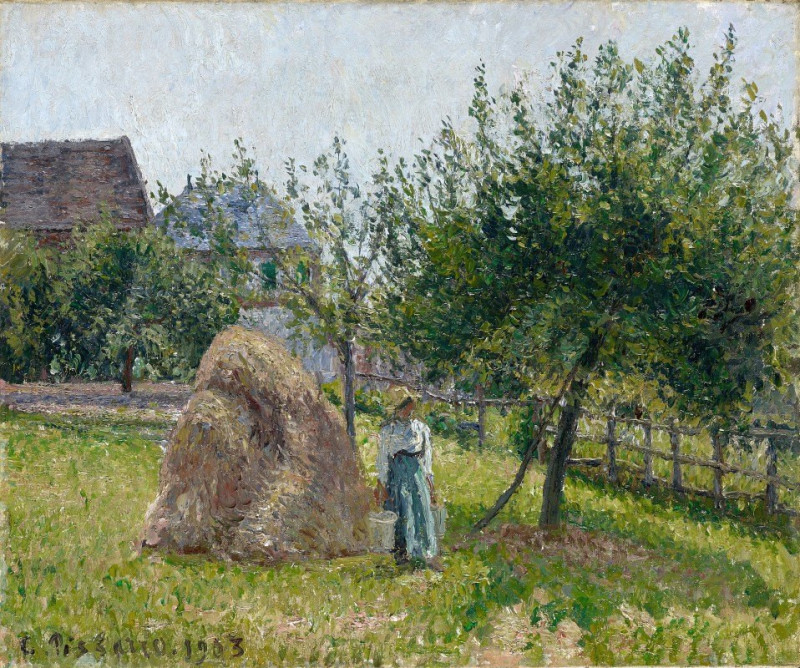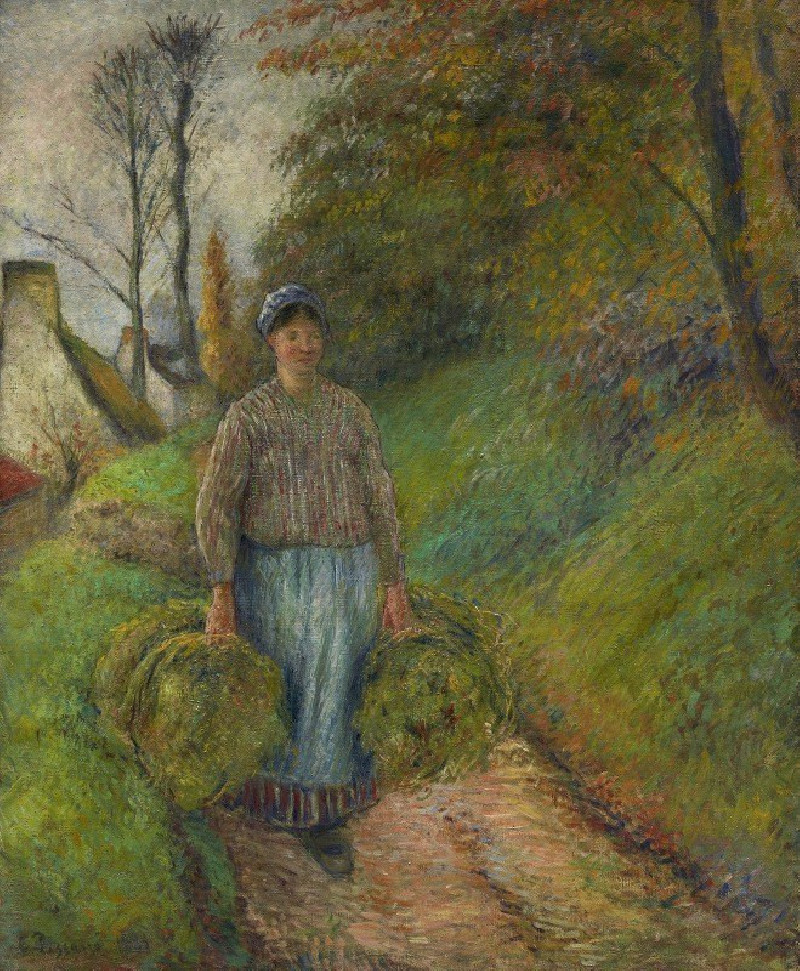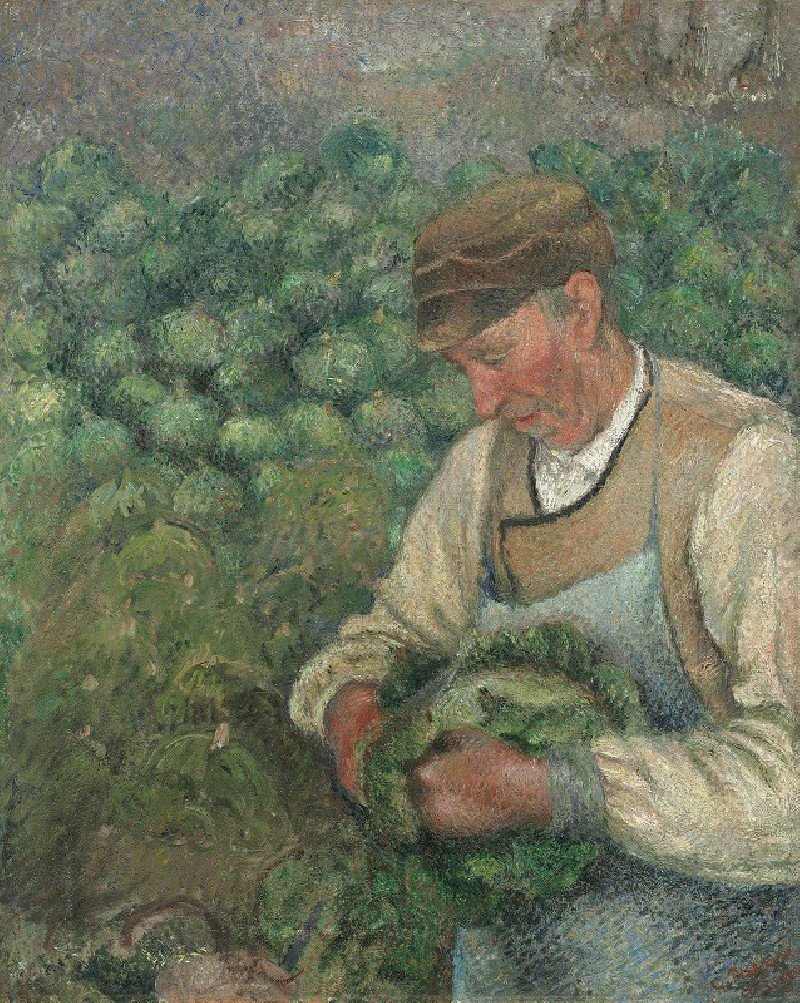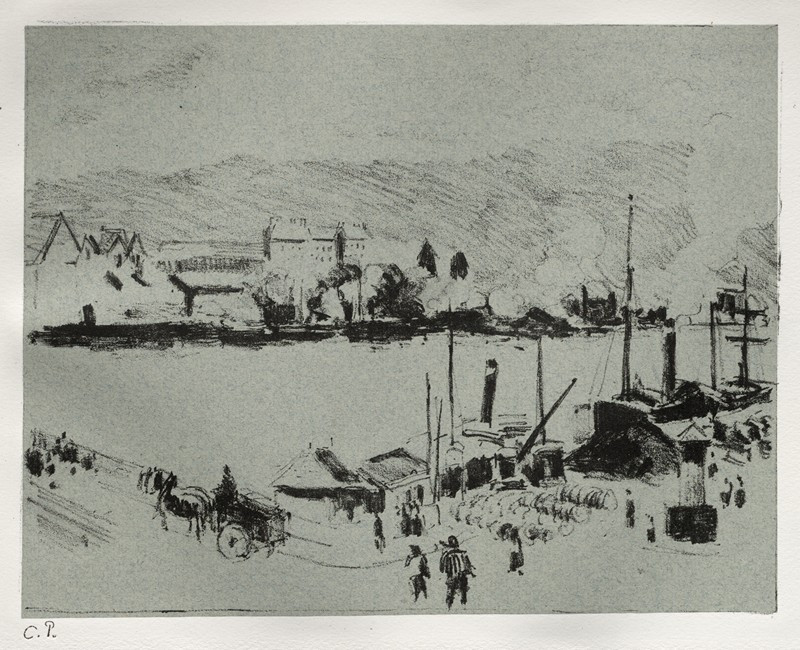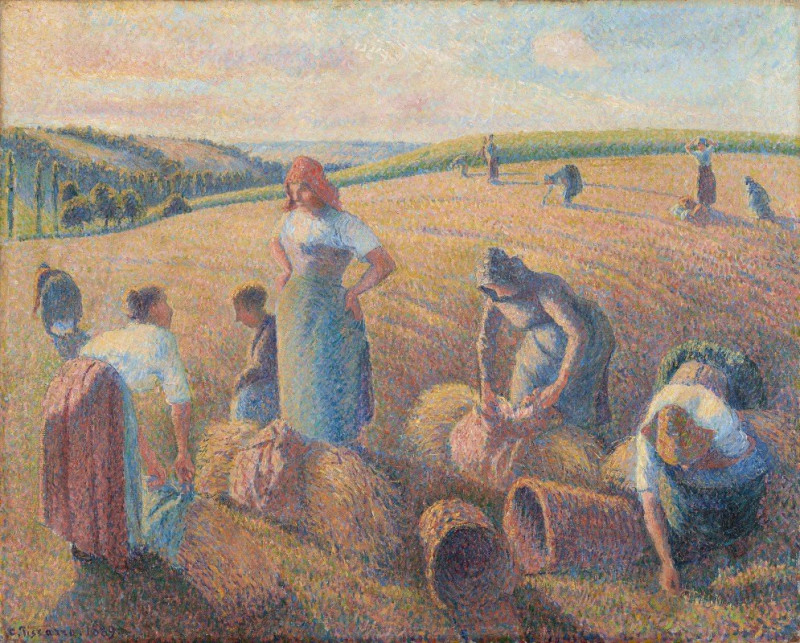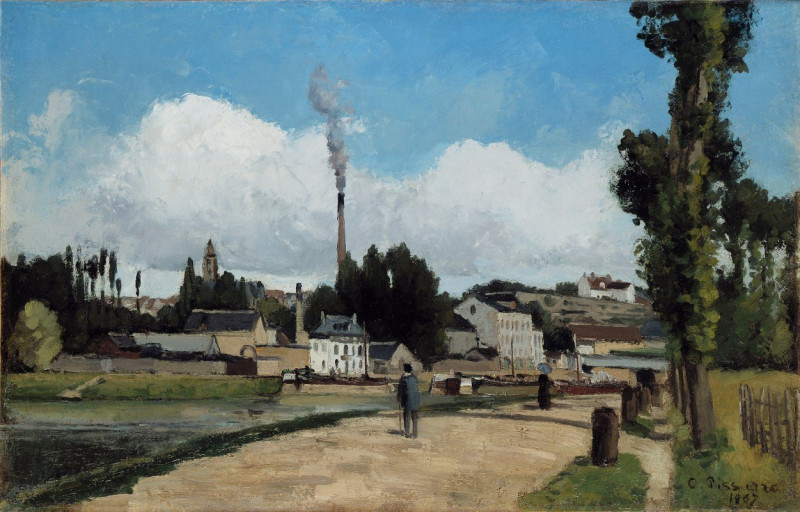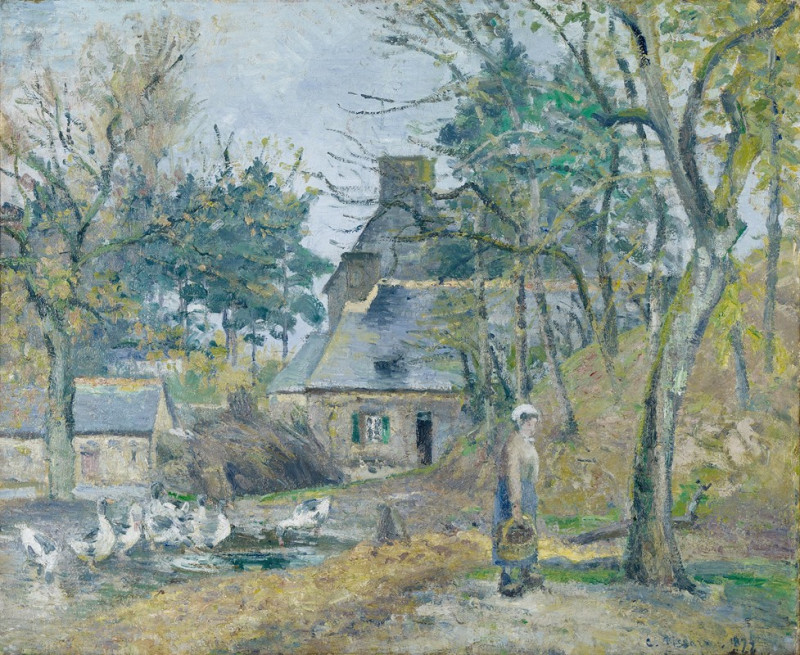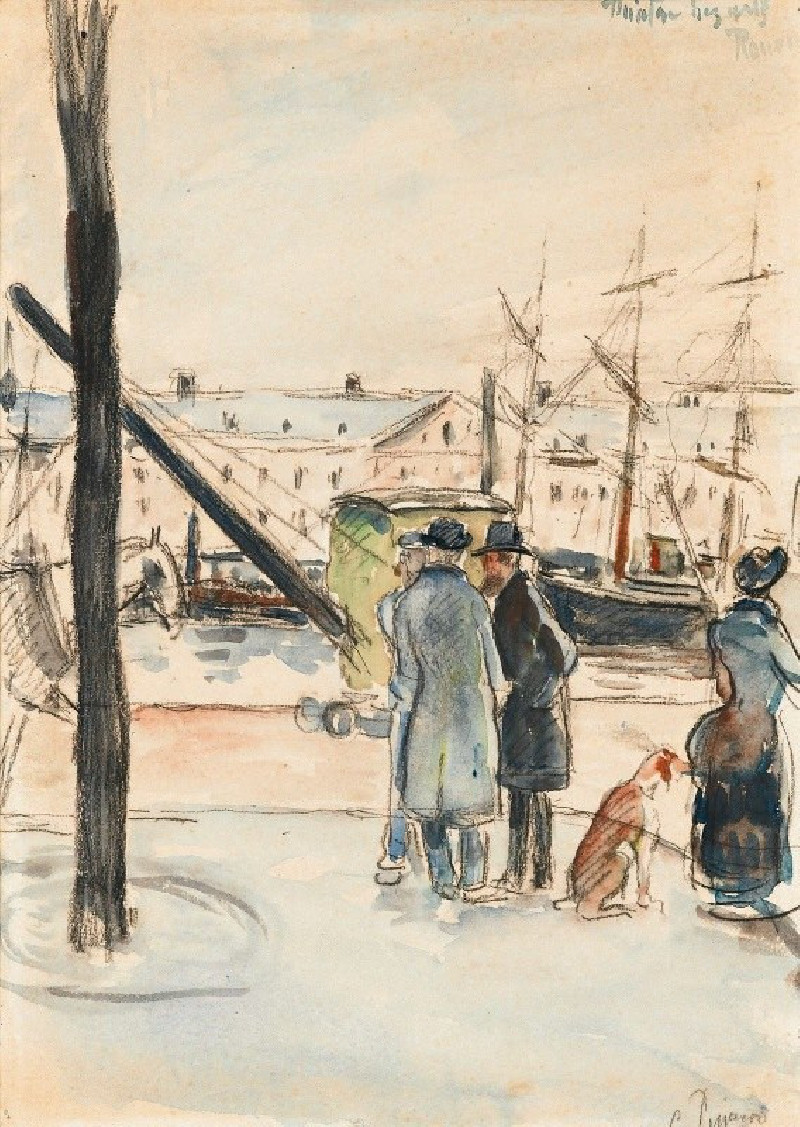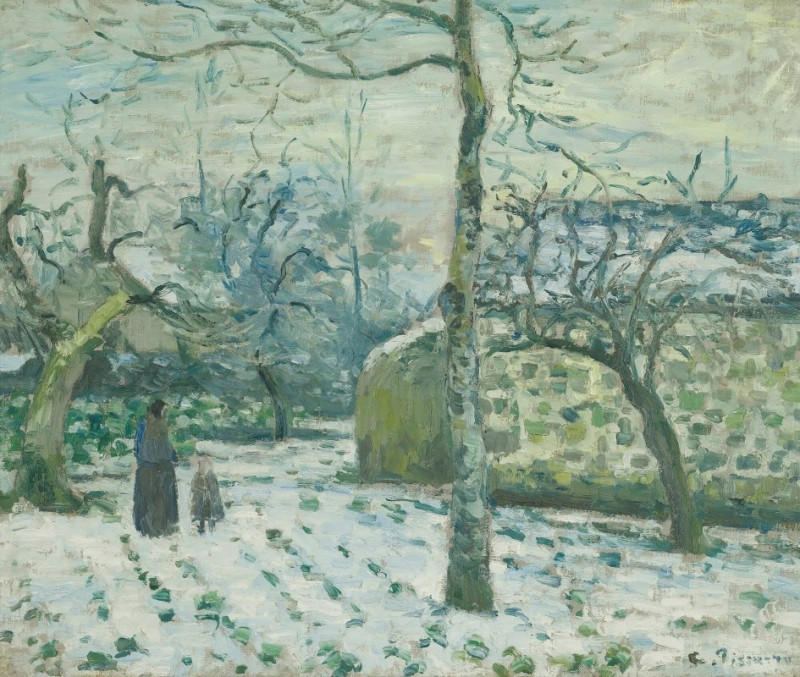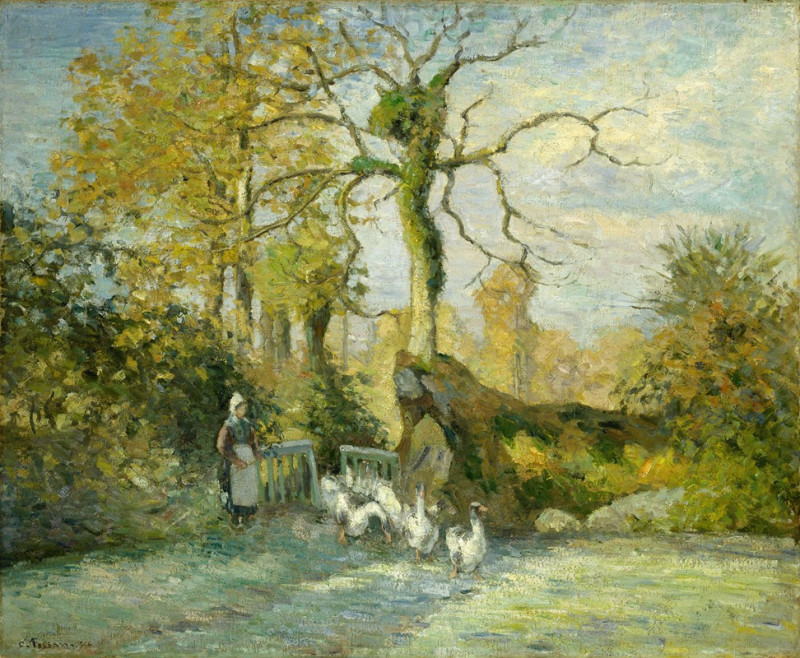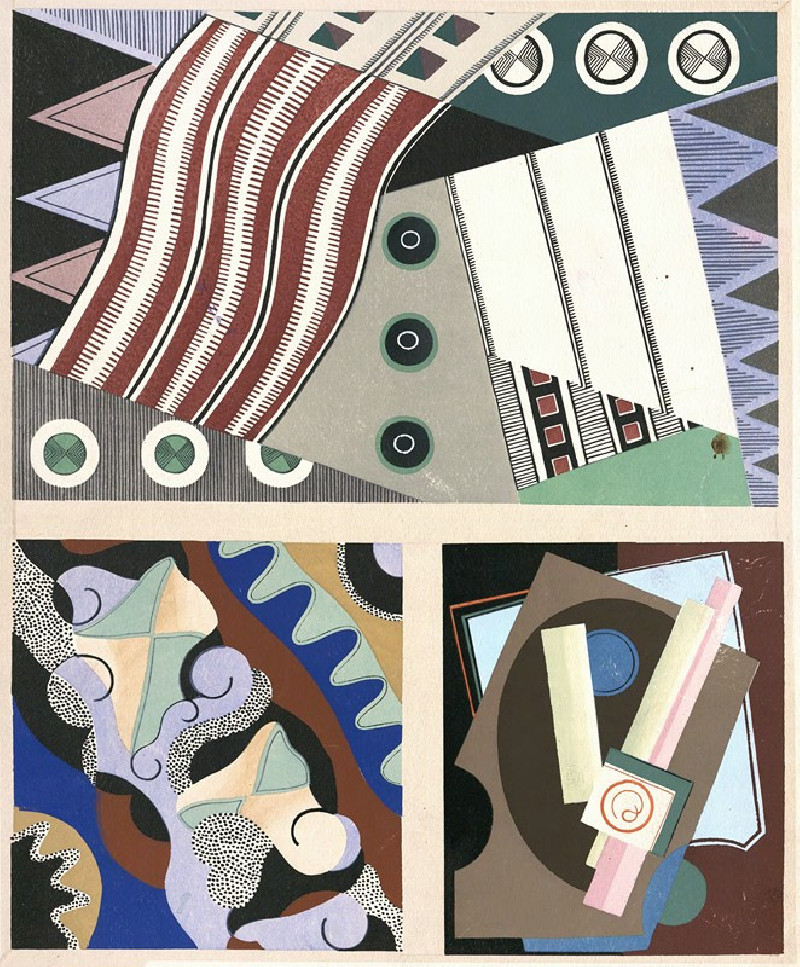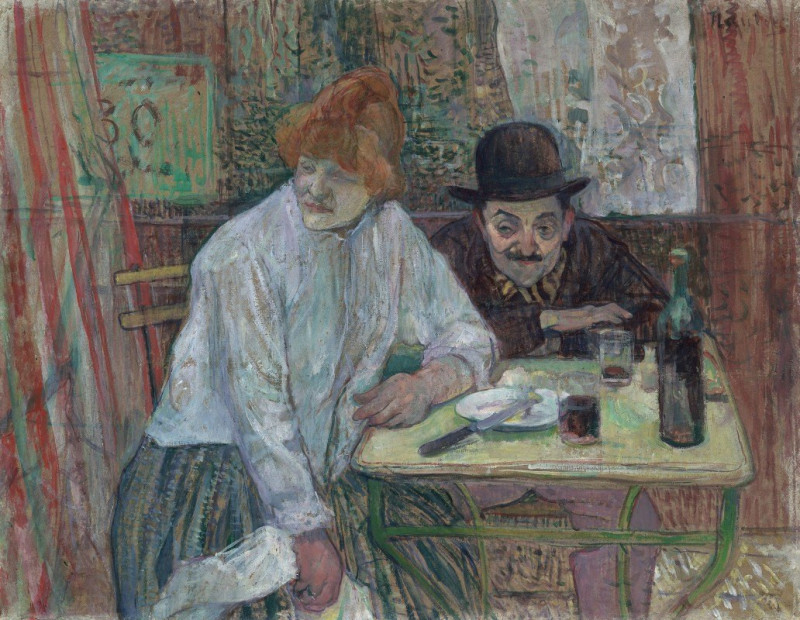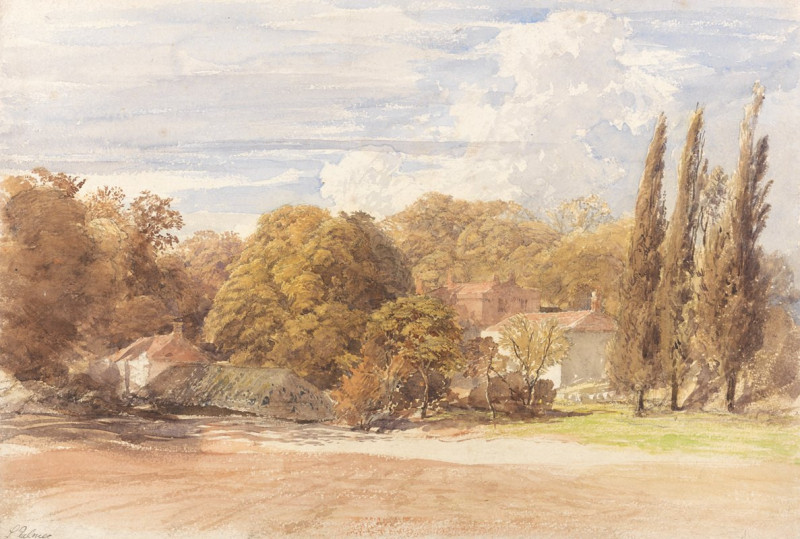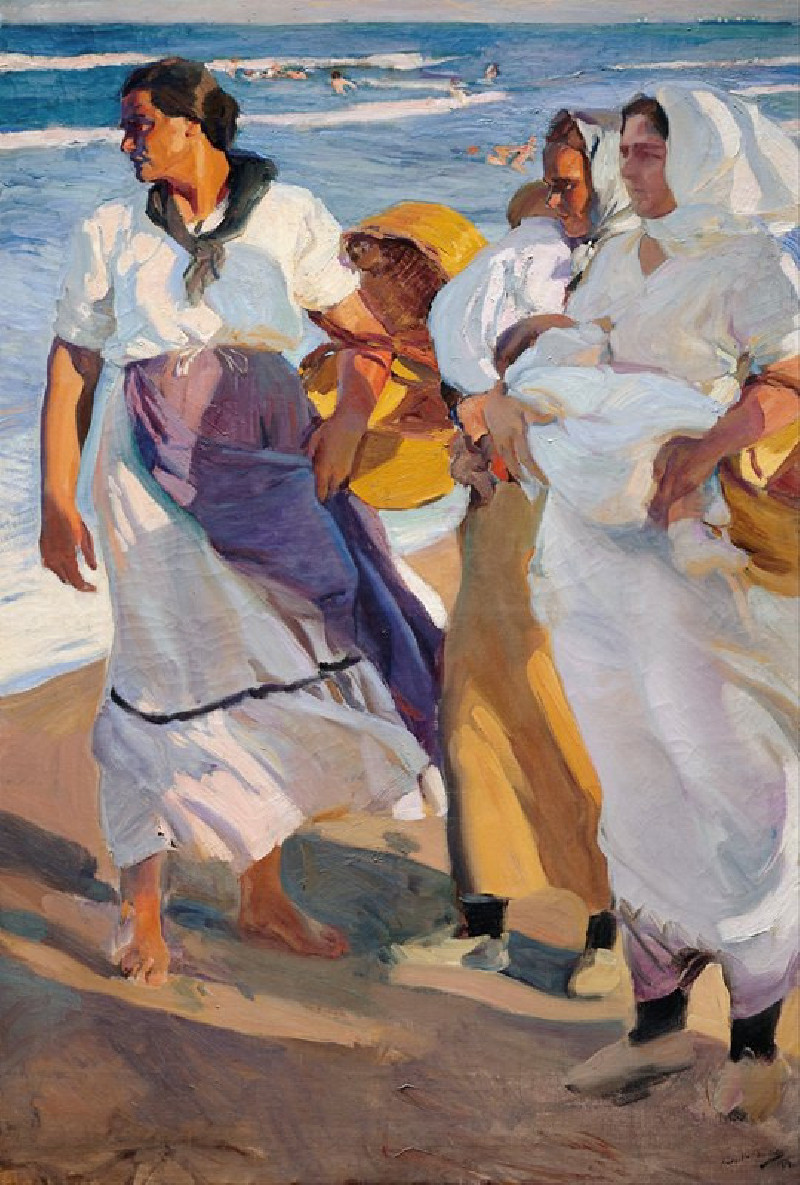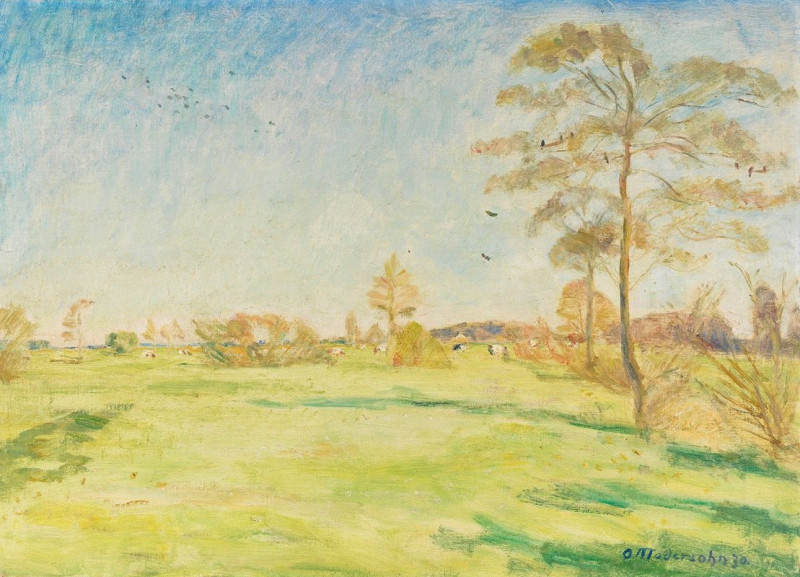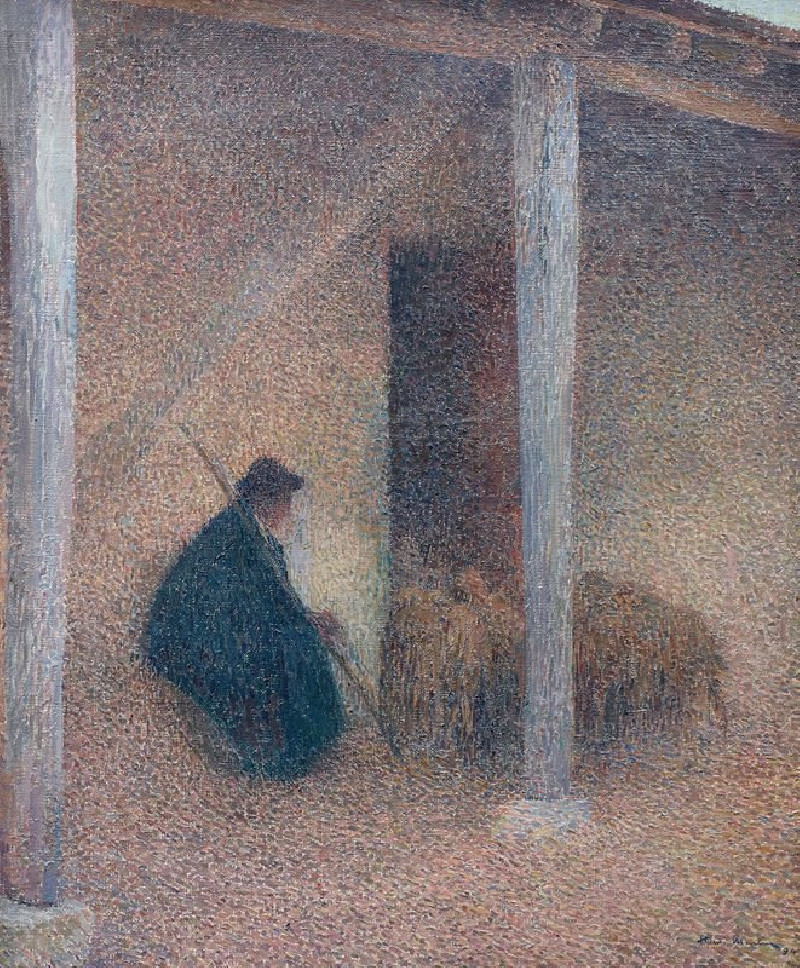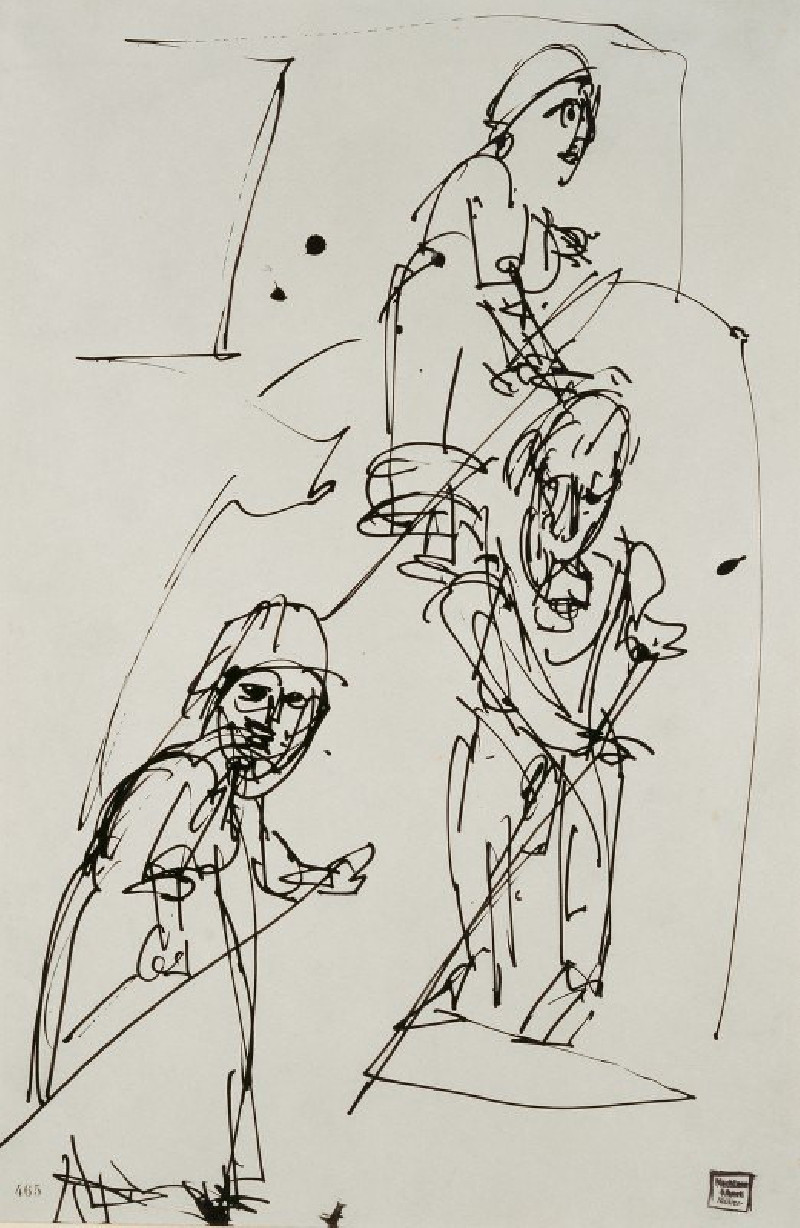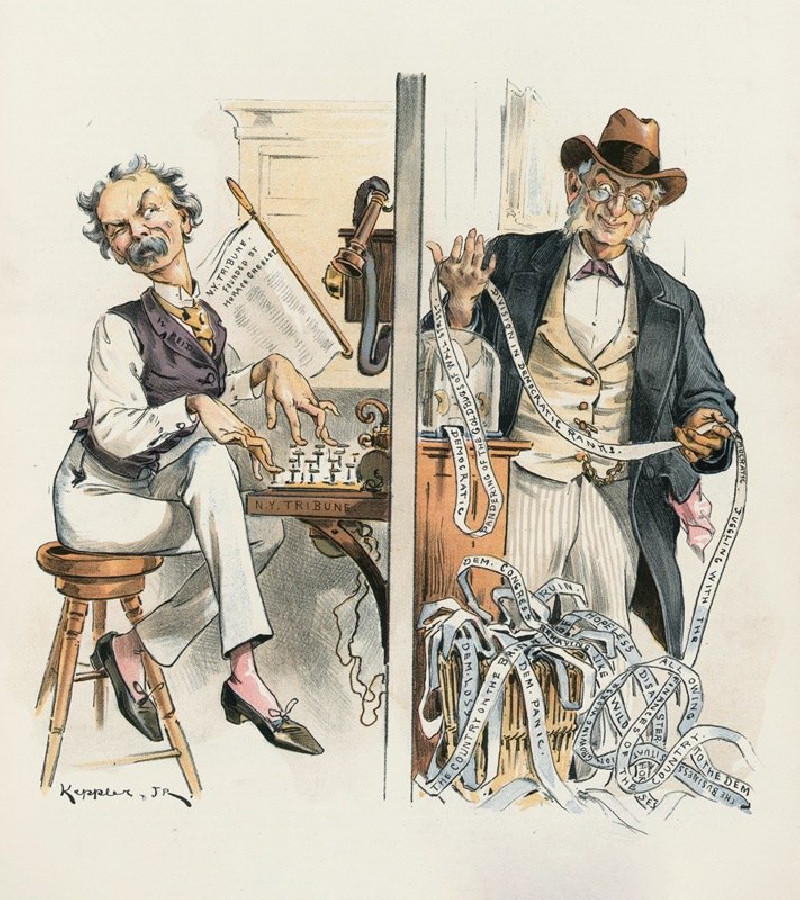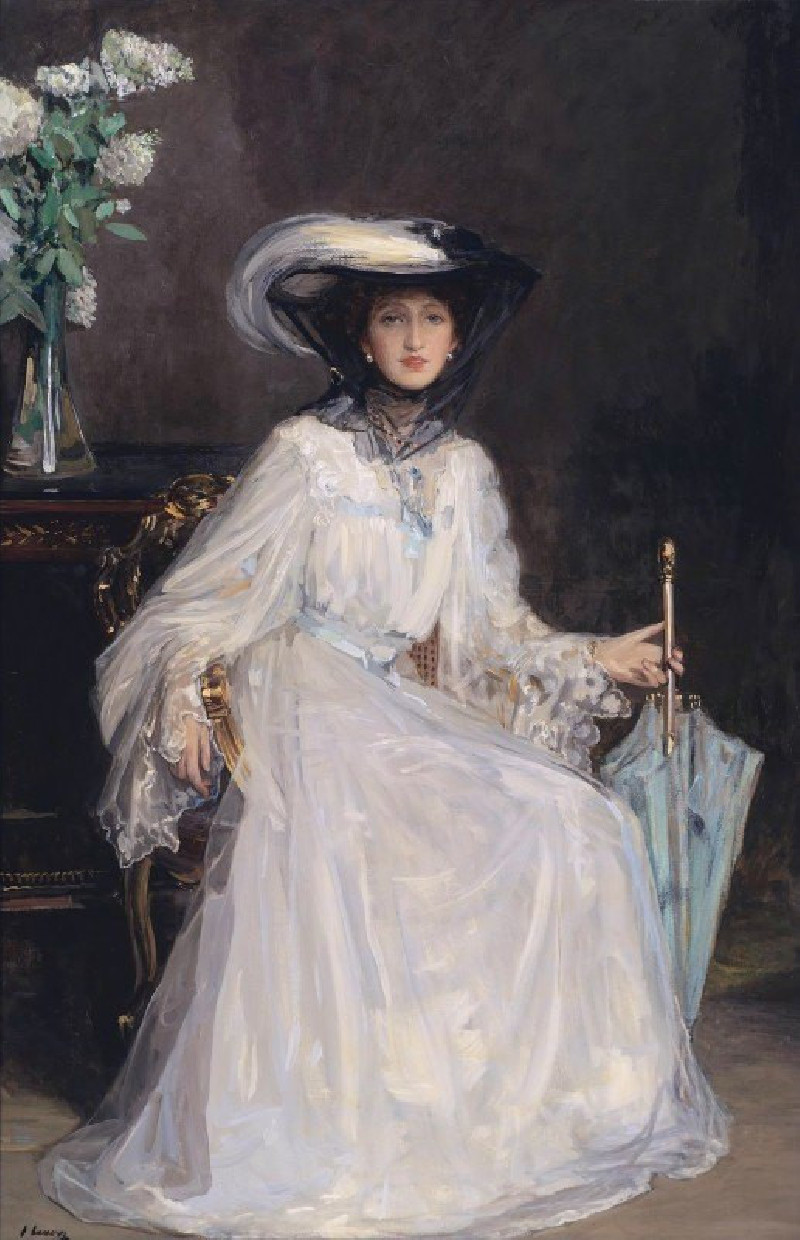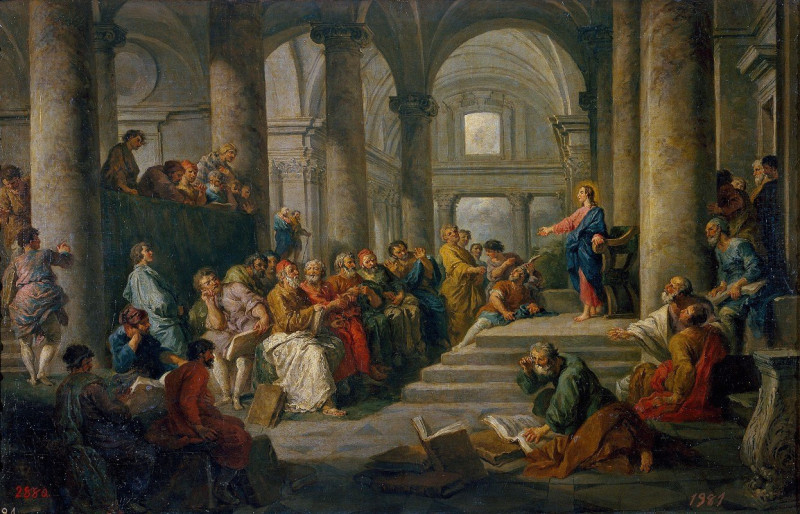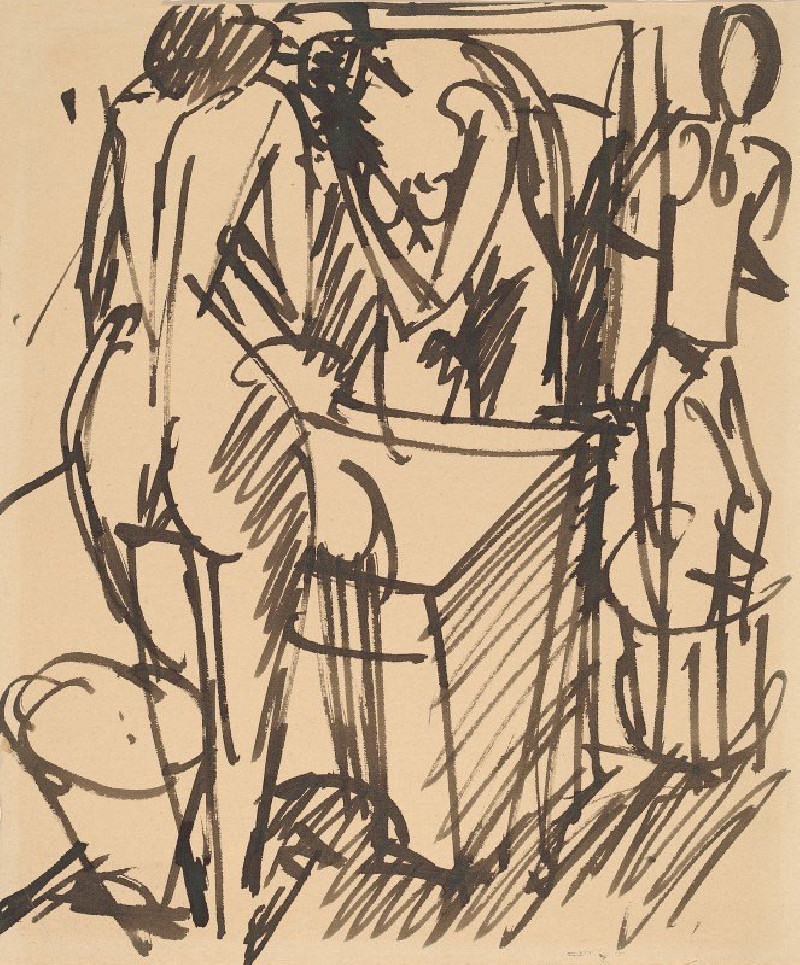Place du Carrousel,Paris (1900)
Technique: Giclée quality print
Recommended by our customers
More about this artwork
Delve into the vibrant urban landscape of Paris at the turn of the 20th century with Camille Pissarro’s enchanting masterpiece, "Place du Carrousel, Paris (1900)". This splendid painting captures the bustling atmosphere and architectural elegance of a significant historical site in the heart of the French capital.Pissarro, a master of Impressionism, presents a scenic view that beautifully contrasts the grandeur of Parisian architecture against the lively everyday activities of its inhabitants. The artwork showcases the Place du Carrousel, named after a cavalry drill ground established by Napoleon, and offers a glimpse of the Louvre Palace with its unmistakable classical facades enhancing the background.The painting is alive with movement: groups of elegantly dressed people stroll or gather in discussion; others are seen in the quieter acts of solitary ambulation. Broad, dynamic brushstrokes capture the shimmering play of light on foliage and structures, while the expansive blue sky dotted with serene clouds instills a sense of calm above the urban flurry.Through "Place du Carrousel, Paris (1900)", Pissarro not only documents a historical place but also encapsulates the spirit of Parisian life. His selection of angles and the interplay of natural light emphasize both the transience of human activity and the enduring majesty of urban structures. This painting is a must-see for those wishing to experience a pivotal moment in Parisian history through the eyes of one of Impressionism's greats.
Delivery
Returns
Blessed are they who see beautiful things in humble places where other people see nothing. — Camille Pissarro
Camille Pissarro (1830-1903) was born on St.Thomas (now the US Virgin Islands) to a Portuguese father and a Dominican mother. He went to Paris to study art at Ecole des Beaux-Arts. He was an early pioneer of pointillism and neo-impressionism and later became a mentor of many famous impressionist painters including Cezanne, Manet, Renoir, and Gauguin. His paintings depicted rural and urban French landscapes and lifestyle. Many of his works politically captured images of peasants and laborers. Today, he is considered the father of impressionism.

